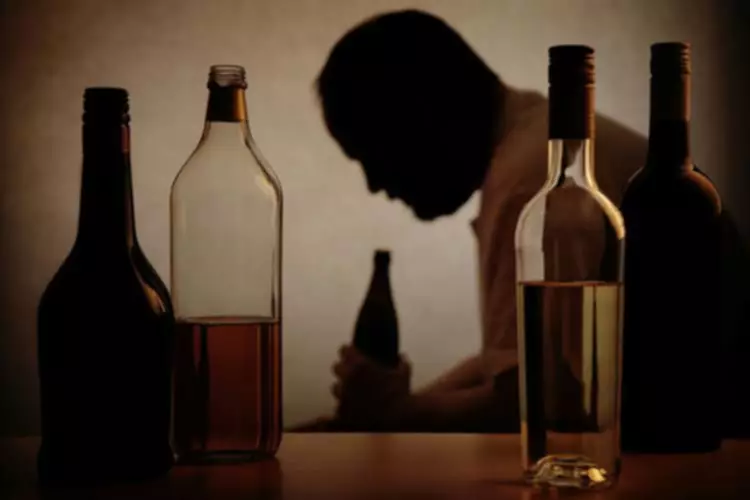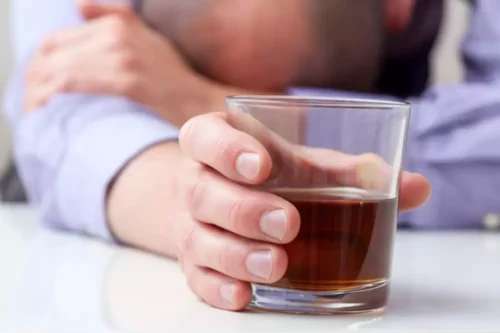
Individual and couples therapy can equip you with the perspective, tools, and resources you need to embrace a healthier relationship with yourself, your partner, and alcohol. While you can self-diagnose this disorder, it is difficult to recover without help. The Recovery Village specializes in helping people with alcohol addiction make it safely through alcohol detox and then gain the skills and resources necessary to live a fulfilling life without alcohol. Just ask yourself why you feel the need to be dishonest about your drinking.
Increased Risk-Taking Behaviors

This is a self-assessment that is a quick and easy way to see if you or your partner might be drinking too much. If you encourage each other to drink more, or instigate drinking at different times, you may both be more likely to end up drinking at harmful levels. Peaks Recovery provides accommodating support for individuals who may be experiencing some obstacles in their recovery journey or are looking for a step down from an inpatient program. According to the 2019 National Survey on Drug Use and Health from the Substance Abuse and Mental Health Services Administration, 69.5% of people in the United States reported drinking within the last year. 25.8% of people classified their recent consumption habits as binge drinking (excessive drinking in a defined amount of time).
What Are the Warning Signs That Alcohol Misuse Is Interfering With Relationships?
This model suggests that interventions where alcohol is responsible for domestic violence needs to happen at a community level and the wider population and not just on a one-on-one or couple basis. The drinking partner may engage in highly provocative or aggressive behavior without thinking about the consequences of his or her actions because of alcohol’s effects on risk-taking. If you are drinking heavily or are worried you may be dependent on alcohol, reach out to a healthcare provider before you start reducing your alcohol consumption to determine the safest way to make changes.
- Finances are often one of the biggest stressors in a relationship, and if you add alcohol into the mix, finances can become even more volatile.
- This cycle is also described as a “chemical romance” between an individual and alcohol.
- Seeking professional help and support for alcohol addiction is crucial for both the individual and the relationship.
- Alcohol can have a significant impact on relationships, affecting various aspects of communication, emotional intimacy, and conflict resolution.
- You can expect to answer questions about the number of times you drink alcohol in a week, if you’ve ever tried to quit drinking, how you deal with cravings, how you feel after drinking, and more.
How Does Alcoholism Affect Romantic Relationships?
A 2020 study found that when weekly drinkers were presented with and aware of increased non-alcoholic options, they were likely to choose them. In low to moderate alcohol consumption, antioxidants may provide some cardiovascular benefits. While you may experience euphoria or relaxation at first, in the long run, alcohol affects neurotransmitters, which can lead to changes in your thoughts, moods, and behavior. We can all experience temporary and long-term effects of alcohol, depending on our consumption. Discover the importance of self-care and its impact on mental, emotional, and physical well-being.
Support Groups for Family Members
Alcohol codependency occurs when a person becomes reliant on someone and their alcohol misuse hinges on their partner’s behaviors. A partner of someone addicted to alcohol may believe they’re helping the other person by enabling the addiction to continue. In reality, they’re doing it for themselves while encouraging an unhealthy dynamic. The connection between alcohol, interpersonal violence and codependency is widely documented. Constant conflict or neglect can severely impact children of parents with alcohol addiction. They may experience loneliness, depression, guilt, anxiety, anger issues and an inability to trust others.

Effects of Alcoholism on the Family
- Managing your drinking and getting the right support are really important for your mental health.
- Peaks Recovery is licensed to provide the highest level of inpatient and residential programming in Colorado.
- By Geralyn Dexter, PhD, LMHCDexter has a doctorate in psychology and is a licensed mental health counselor with a focus on suicidal ideation, self-harm, and mood disorders.
- These effects can strain emotional bonds and hinder the development of deep emotional connections.
- Additionally, chronic drinkers may have to leave careers early due to health problems.
Successful relationships are built on a foundation of honesty and trust, and any type of secrecy is a red flag. Healing relationships can take time, so be patient with yourself and your loved ones. Using resources offered by a family therapist and support groups like AA can help with taking action steps toward healing relationships. Establishing new routines that don’t involve alcohol can lead to better physical, mental, and emotional health.

The Influence of Alcohol on Relationships
And, the partner with a drinking problem may have a disproportionate response to a perceived slight, insult or other apparent wrong done by the partner. The one who engages in alcohol abuse may be less likely to see the partner’s perspective or the situational and environmental factors that may have affected the partner’s behavior. This is because of the narrowing of their focus of attention on a specific action of the partner related to their drinking.
- Alcohol can affect relationships in various ways, and this can look different for each person.
- Many individuals with alcohol addiction need external treatment and supports to find sobriety and address harm that may be related to alcohol and relationships in their life.
- That said, it’s important to note that not all problem drinkers are alcoholics.
- Take our short alcohol quiz to learn where you fall on the drinking spectrum and if you might benefit from quitting or cutting back on alcohol.
- Often they are incapable of recognizing that they have a problem – some also have a skewed view of counseling.
Interventions such as these would need to involve community figureheads and other key stakeholders in order to make them workable solutions. Drinking alcohol can influence your psychological functioning and well-being. Alcohol also causes damage to nerves and pathways, which disrupts communication between essential organs and bodily functions. The pancreas is essential for breaking down enzymes and starches (like those in alcohol). When the pancreas becomes irritated and inflamed, you can develop pancreatitis. Your liver produces enzymes that break down alcohol, but your liver can only handle so much alcohol at one time (approximately 1 ounce per hour).
Know the Signs
” With a plethora of tailored support available, it is vital to seek help – getting your alcohol-dependent partner to enter a treatment program could be one of the best things you can do for your relationship. Setting boundaries can involve discussing limits on alcohol consumption, agreeing on responsible drinking practices, and establishing guidelines for attending social events where alcohol alcohol affecting relationships is present. It’s crucial to be clear and specific about these boundaries to avoid misunderstandings and conflicts in the future. As inhibitions decrease, individuals may become more assertive or dominant, while others may become more passive or submissive. This can disrupt the balance of power and equality within the relationship, potentially leading to conflicts or feelings of resentment.
With Ria, you won’t have to rearrange your life to start improving your drinking habits, relationships, and overall well-being. When it comes to how alcohol affects relationships, you might notice more lying or deception from yourself or your spouse. For instance, someone with alcohol addiction might lie to their spouse about where they are (e.g., a bar or friend’s house) because it involves drinking.
